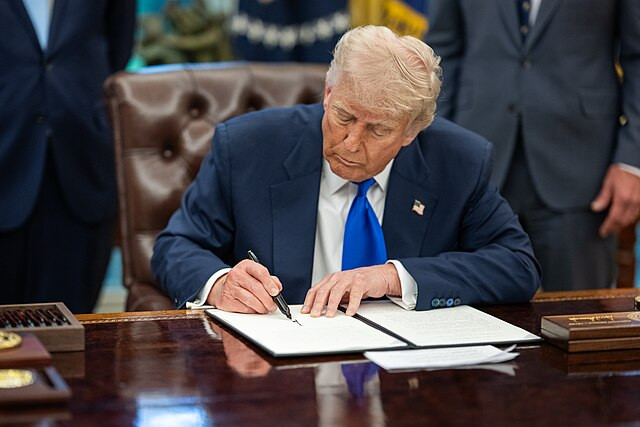The Trump administration is preparing to deport migrants to Libya, according to U.S. officials, a controversial move that would mark the first time the United States has forcibly returned individuals to the war-torn North African nation. The plans, which could involve military transport flights as early as this week, come despite Libya's documented record of widespread human rights abuses, including torture, rape, slavery, and extrajudicial detention.
Three U.S. officials confirmed that the deportations are under consideration, with two of them stating that flights to Libya could take place as soon as Wednesday. The exact number and nationalities of the migrants were not disclosed. The Department of Defense referred inquiries to the White House, which has not commented. Libya's Government of National Unity denied any agreement to accept deported migrants, stating it had not been consulted by Washington.
Human rights groups and international aid organizations swiftly condemned the plan. "Migrants have long been trafficked, tortured and ransomed in Libya. The country is in a civil war. It is not a safe place to send anyone," said Sarah Leah Whitson, executive director of Democracy for the Arab World Now (DAWN).
Claudia Lodesani of Médecins Sans Frontières echoed the alarm, citing a 2023 United Nations report detailing "widespread practices of arbitrary detention, torture, rape and slavery" in Libyan detention centers. The report concluded that there are "grounds to believe a wide array of crimes against humanity have been committed against migrants in Libya."
Libya has become a key transit hub for African migrants seeking passage to Europe. Thousands remain trapped in overcrowded detention centers operated by armed militias and smuggling networks, where they are subject to brutal treatment. Photographs circulated by advocates show squalid conditions in holding facilities, with inmates packed into cages and denied medical care.
Aaron Reichlin-Melnick, senior fellow at the American Immigration Council, posted a photo of a detention site and wrote: "Don't look away. This is what Libya's migrant detention facilities look like. This is what Trump is doing."
The Trump administration's broader deportation strategy has increasingly targeted third-party countries. U.S. officials have acknowledged plans to send migrants to Angola, Benin, Eswatini, Moldova, and Rwanda. More than 150,000 individuals have already been deported this year, including at least 238 Venezuelan nationals sent to prisons in El Salvador.
U.S. Secretary of State Marco Rubio has defended the expansion of third-country deportations. "We are working with other countries to say: we want to send you some of the most despicable human beings; will you do this as a favor to us?" Rubio said at a White House cabinet meeting last week. "And the further away from America, the better."
Libya's eastern authority, the Libyan National Army under commander Khalifa Haftar, also rejected the idea of accepting U.S. deportees, citing national sovereignty. The country remains fractured between rival governments despite a 2020 truce.
The U.S. State Department's own 2023 report warned of "life-threatening" prison conditions in Libya, with arbitrary detention and no access to immigration courts or due process. A travel advisory from the same agency warns Americans not to visit Libya due to "crime, civil unrest, kidnapping and armed conflict."
Activists and rescue workers operating in the Mediterranean say the move could have catastrophic humanitarian consequences. Mirka Schäfer of SOS Humanity stated: "Evidence from survivors onboard our vessel Humanity 1, includes refugees with traces of torture on their bodies, gunshot wounds, pain caused by beatings, physical and psychological wounds while in transit, in detention camps in Libya, or fleeing Libya across the Mediterranean."
Trump's administration has invoked a rarely used wartime statute to accelerate deportations and is seeking to overturn a Supreme Court ruling that temporarily blocked the removal of Venezuelan asylum seekers.






